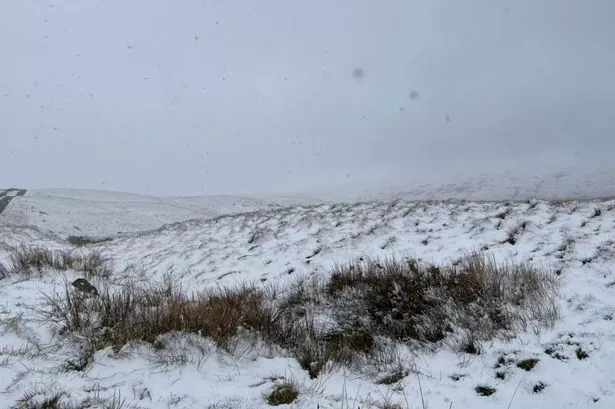A week-long amber cold weather alert has been issued for northern England as snow and ice create treacherous travel conditions across the United Kingdom.
The UK Health Security Agency (UKHSA) and the Met Office jointly declared the amber cold-health alert, effective until Tuesday, December 5. This alert is part of a new system introduced for England this month and serves as a stark reminder of the potential health risks associated with prolonged exposure to freezing temperatures.
The decision to issue the amber alert stems from forecasts predicting average temperatures of 2°C (35.6°F) or below, coupled with wintry showers, icy conditions, and significant snowfall.
This marks the first amber cold-health alert this year, emphasizing the severity of the weather conditions expected to impact the region.
The alerts, categorized into yellow and amber, serve as crucial indicators of the potential impact on vulnerable populations. A yellow alert, intended for elderly and vulnerable individuals, signifies heightened awareness and precaution.
In contrast, an amber alert suggests that the cold weather’s effects are likely to be felt across the entire health service for an extended period, posing potential risks to the entire population.
Agostinho Moreira de Sousa, the head of extreme events and health protection at UKHSA, emphasized the importance of proactive measures for those at risk. He urged individuals with medical conditions and the elderly to ensure that the rooms where they spend the most time are adequately heated.
With widespread overnight frosts and snowfall, he stressed the need to check on the well-being of those most vulnerable to the cold.
The Met Office has also issued several yellow weather alerts for snow and ice across large parts of Scotland, Northern Ireland, and England. The most recent alert, spanning from Thursday 5 pm to Friday 11 am, covers the east of the UK from Shetland to Essex.
It warns of potential ice patches on roads and paths, accompanied by snowfall ranging between 2cm and 5cm in some areas.
Northern regions, including Yorkshire and north-east England, woke up to a snowy landscape on Wednesday, with reports of road closures and treacherous driving conditions.
The A169 over the North York Moors was temporarily closed, and authorities warned of challenging conditions across the region.
he alert is currently in place from 6pm on Tuesday 28 November to midday on Tuesday 5 December. The Met Office has forecast average temperatures around or less than 2°C during the time of the alert in areas under amber alert, with wintry showers, icy conditions, and some snow.
Under the new CHA system introduced by UKHSA and the Met Office, an amber alert means that cold weather impacts are likely to be felt across the whole health service for an extended period of time, with potential for the whole population to be at risk and where other sectors may also start to observe impacts, indicating a coordinated response is required. A yellow alert means that any impacts include the increased use of health care services by vulnerable populations and an increase in risk to health for individuals over the age of 65, those with pre-existing health conditions, including respiratory and cardiovascular diseases and some other vulnerable groups, such as those sleeping rough.
Dr Agostinho Sousa, Head of Extreme Events and Health Protection at UKHSA, said:
With a risk of widespread overnight frosts and some snow across the country this week, it’s important to check in on the wellbeing of those most vulnerable to the cold.
Cold weather can have a serious impact on health, particularly older people, and those with pre-existing health conditions, as it increases the risks of heart attacks, strokes, and chest infections.
If you have a pre-existing medical condition or are over the age of 65, it is important to try and heat the rooms where you spend most of your time in, such as your living room or bedroom.
As the cold air blast from northern Scandinavia influences the UK, the Met Office deputy chief meteorologist, David Oliver, highlighted the unpredictability of the weather models.
The prospect of an area of low pressure moving in from the south or south-west could bring warmer and moisture-laden air, potentially leading to widespread snowfall in southern and central Britain.
-
Share On
- Categories
- Date

